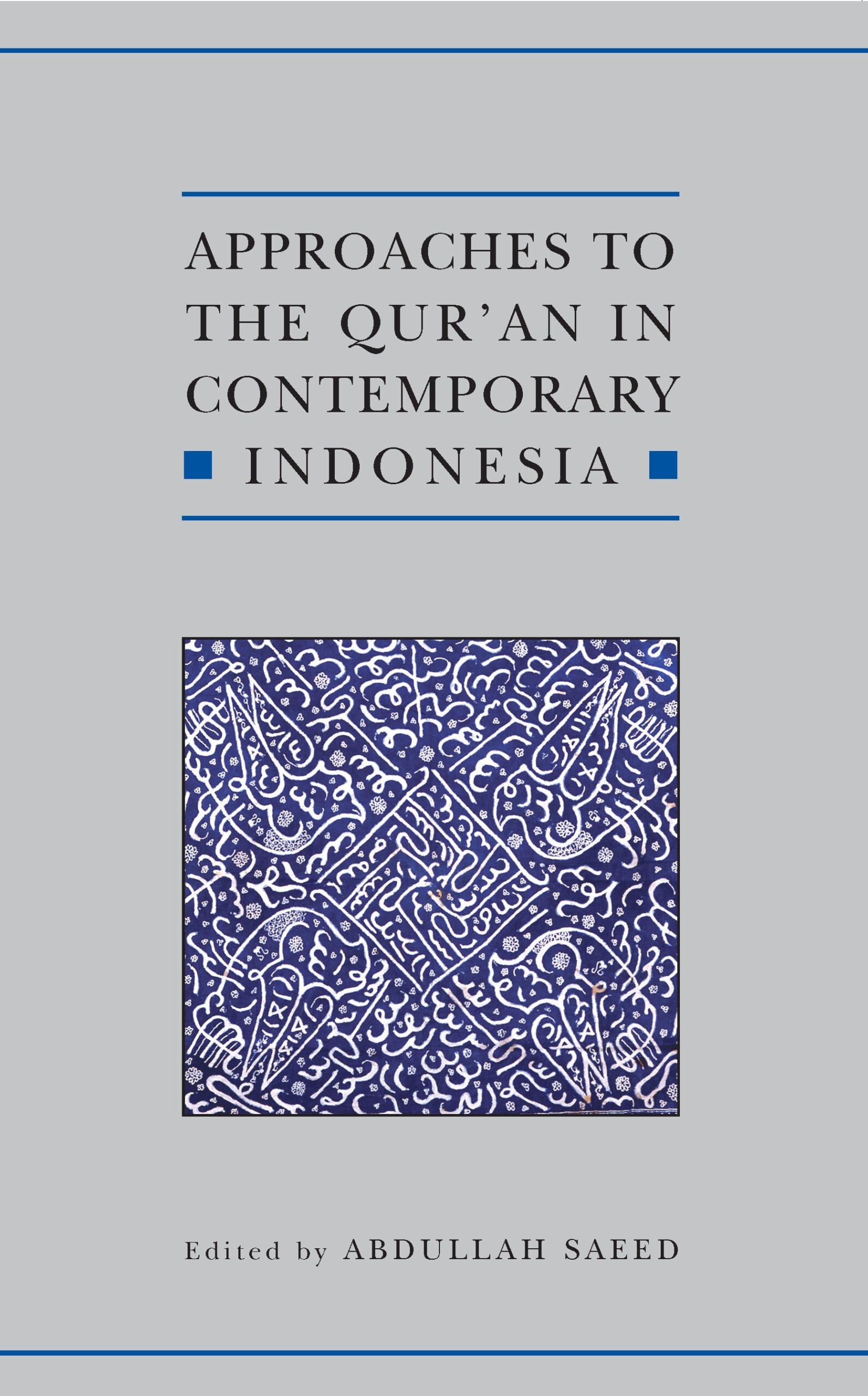Indonesia, the world’s most populous Muslim country, has a vibrant intellectual community that is undertaking interesting and challenging work on Islam. This volume brings together a cross-section of Muslim intellectuals, from traditionalists to neo-modernists, and makes their varied approaches to the Qur’anMuslims believe that the Holy Qur’an contains divine revelations to the Prophet Muhammed received in Mecca and Medina over a period of 23 years in the early 7th century CE. More accessible in English to a wider, global audience for the first time. Topics covered range from textual interpretation and religious pluralism to debates on polygamy and the use of Qur’anic verses in Indonesian politics. The essays reflect the interests and approaches of a new generation of Indonesian Muslim scholars, who seek guidance from traditional religious texts within a contemporary context.
Preface by Anthony H. Johns
1. Introduction: the Qur’an, Interpretation and the Indonesian Context
Abdullah Saeed
2. Qur’anic Exegesis in the Malay – Indonesian World: An Introductory Survey
Anthony H. Johns
3. Hamka’s Method in Interpreting Legal Verses of the Qur’an
Milhan Yusuf
4. Purposive Exegesis: A Study of Quraish Shihab’s Thematic Interpretation of the Qur’an
Muhammadiyah Amin and Kusmana
5. The Controversy around H.B. Jassin: A Study of His al-Quranu’l Karim Bacaan Mulia and al-Qur’an al-Karim Berwajah Puisi
Yusuf Rahman
6. A Contextual Approach to the Qur’an
Taufik Adnan Amal and Samsu Rizal Panggabean
7. Sacred and Profane Law in the Indonesian Context: The Case of the Bequest Vase
Ratno Lukito
8. Abortion and the Qur’an: A Need for Reinterpretation in Indonesia?
Lies Marcoes-Natsir
9. The Indonesian Muslim Women’s Movement and the Issue of Polygamy: the ‘Aisyiyah Interpretation of Qur’an 4:3 and 4:129
Ro’fah Mudzakir
10. The Use and Abuse of Qur’anic Verses in Contemporary Indonesian Politics
Azyumardi Azra
11. Interpreting the Qur’anic Principle of Pluralism and Peace
Nurcholish Madjid
Notes on Contributors
Glossary
Index
Index of Qur’anic Citations
‘…aptly described by the editor… “to make available to the English-speaking audience a sample of writings on Qur’an-related topics by intellectuals from the world’s most populous Muslim country…and by a range of Indonesian authors”.’
– Muhammad Zainiy Uthman, Journal of Islamic Studies
‘Saeed must be congratulated for putting a book together which delivers a well-balanced overall picture of the many facets of Qur’anic studies in Indonesia.’
– Holger Warnk, Asien – The German Journal on Contemporary Asia
Abdullah Saeed is Sultan of Oman Professor of Arab and Islamic Studies and the Director of the Centre for the Study of Contemporary Islam at the University of Melbourne. His research interests include modern Qur’anic hermeneutics, Islam and modernity, religious pluralism and human rights, Islamic law reform, Islamic banking and finance, and Islam in Australia. His major publications include Interpreting the Qur’an: Towards a Contemporary Approach (2005); Freedom of Religion, Apostasy and Islam (co-authored 2004); Islam in Australia (2003); Muslim Communities in Australia (co-edited 2001); and Islamic Banking and Interest (1996).

